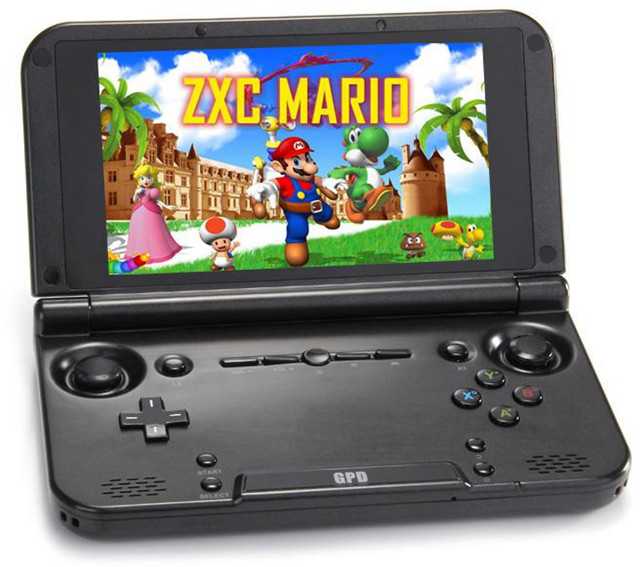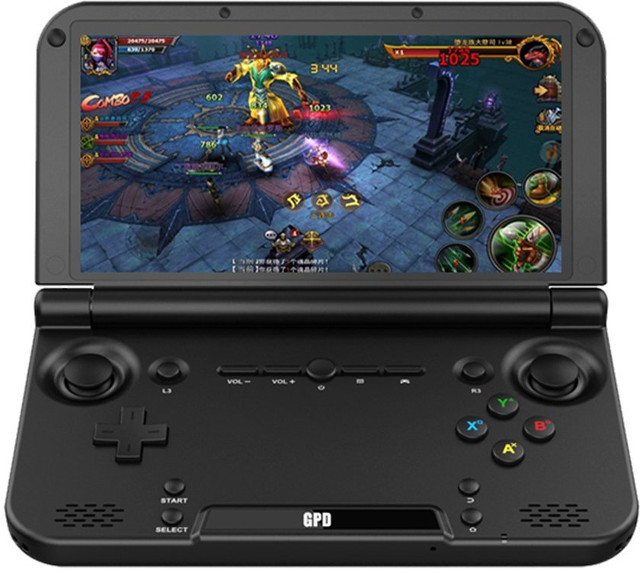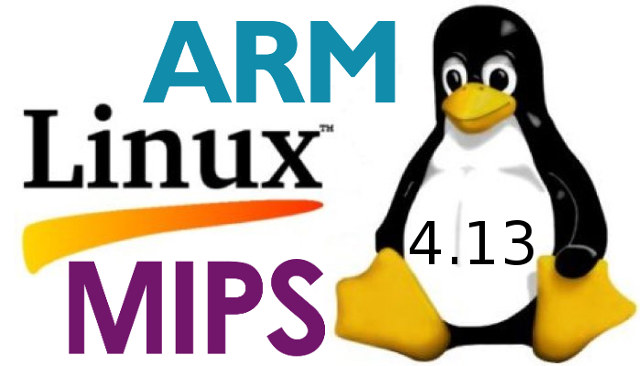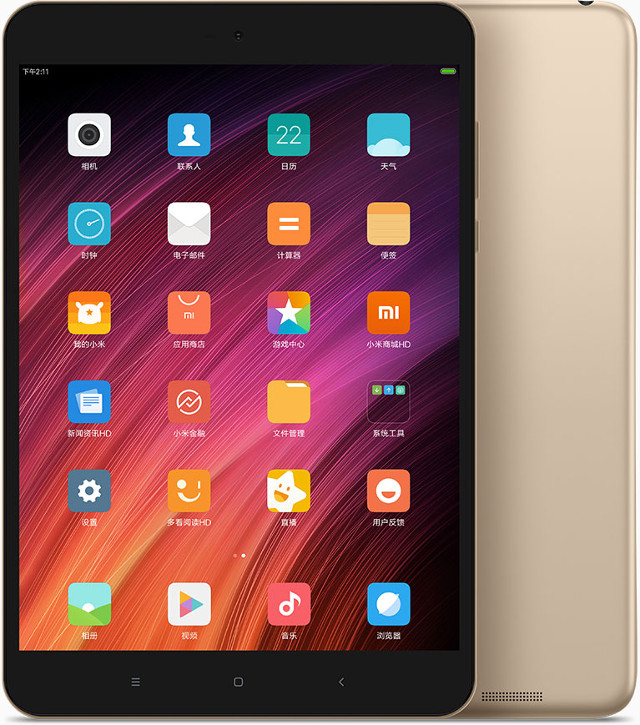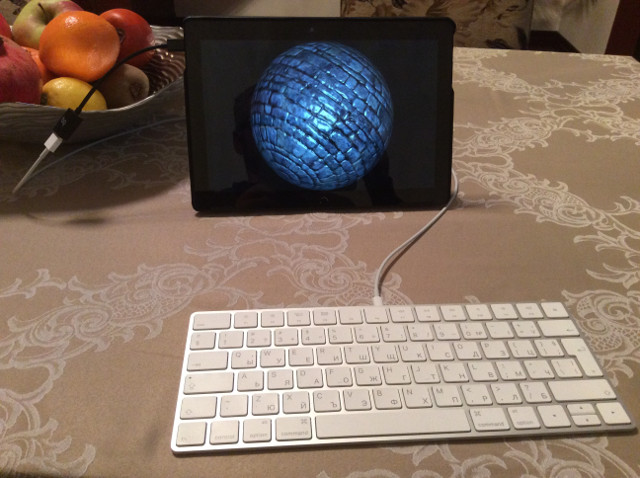Not everybody is willing to spend around $650 on the recently announced GPD Win 2 portable Windows game console, and for people with a lower budget and happy to play Android games, the company has now launched the expected GPD XD+ console with GeekBuying and GearBest taking pre-orders for $209.99 including shipping. GPD XD+ will be an upgrade of the previous GPD XD console with Rockchip RK3288 replaced by a more powerful Mediatek MT8176 processor, and RAM capacity increased to 4GB. The rest of the design is pretty much unchanged. GPD XD Plus specifications: SoC – Mediatek MT8176 hexa-core processor with 2x Cortex A72 cores @ 2.1 GHz, 4x Cortex A53 cores @ 1.7 GHz, and Imagination PowerVR GX6250 GPU System Memory – 4GB RAM Storage – 32GB eMMC flash (GearBest shows 64GB instead), micro SD slot up to 128GB Display – 5″ 720p capacitive touch display Video Output – […]
Rockchip RK3288 To Be Phased Out Soon? GPD XD+ Android Console To Get Mediatek MT8176 SoC, 4GB RAM Upgrade
[Update: I have now seen an email exchange with ASUS replying that Rockchip RK3288 will still be in production for 5 years, so GPD claims that manufacturing will stop for RK3288 may be incorrect, or misunderstood Update 2: Rockchip has now confirmed RK3288 will not be phased out. So I’m guessing there may have been info lost in translation with GPD simply not manufacturing their own RK3288 board anymore] Rockchip RK3288 32-bit Arm processor was first spotted in a company presentation in the summer of 2013, before being announced – with some confusion (Cortex A12 vs A17) – at CES 2014 in January. The quad core Cortex A17 processor had then its moments of glory with inclusion in products such as Chromebooks (2015), and ASUS Tinker board SBC earlier this year. Another product based on the processor is GPD XD Android game console, but according to a report on reddit, […]
Linux 4.13 Release – Main Changes, ARM & MIPS Architectures
Linus Torvalds has just announced the release of Linux 4.13 and a kidney stone…: So last week was actually somewhat eventful, but not enough to push me to delay 4.13. Most of the changes since rc7 are actually networking fixes, the bulk of them to various drivers. With apologies to the authors of said patches, they don’t look all that interesting (which is definitely exactly what you want just before a release). Details in the appended shortlog. Note that the shortlog below is obviously only since rc7 – the _full_4.13 log is much too big to post and nobody sane would read it. So if you’re interested in all the rest of it, get the git tree and limit the logs to the files you are interested in if you crave details. No, the excitement was largely in the mmu notification layer, where we had a fairly last-minute regression and […]
Linux 4.12 Release – Main Changes, ARM & MIPS Architectures
Linus Torvalds has just released Linux 4.12: Things were quite calm this week, so I really didn’t have any real reason to delay the 4.12 release. As mentioned over the various rc announcements, 4.12 is one of the bigger releases historically, and I think only 4.9 ends up having had more commits. And 4.9 was big at least partly because Greg announced it was an LTS kernel. But 4.12 is just plain big. There’s also nothing particularly odd going on in the tree – it’s all just normal development, just more of it that usual. The shortlog below is obviously just the minor changes since rc7 – the whole 4.12 shortlog is much too large to post. In the diff department, 4.12 is also very big, although the reason there isn’t just that there’s a lot of development, we have the added bulk of a lot of new header files […]
ARM Chromebooks Run Android Apps Better, Exhibit Longer Battery Life than Intel Chromebooks (Study)
Google has been working on supporting Android apps and the Play Store on Chromebooks, which are normally sold with either ARM or Intel processors. So the ability to run Android apps well is one of the things to consider before purchasing a Chromebook. Shrout Research has published a paper entitled “Chromebook Platform Choice Important for Android App Performance” comparing an Acer Chromebook R13 with a Mediatek MT8173C ARM Cortex A72/A53 processor to Acer Chromebook R11 with an Intel Celeron N3060. The Intel Chromebook has a smaller resolution so this could be an advantage, so less resources are needed to update the display. However, the ARM processor is significantly more powerful than the Intel one according to GeekBench results, and Chromebook R13 is sold for $399 on Amazon US, while Chromebook R11 goes for $299 (and lower during promotions). So it’s not a perfect comparison, but it should give an idea […]
Xiaomi Mi Pad 3 Tablet Launched with Mediatek MT8176 Hexa-Core Processor, 7.9″ Display
Xiaomi Mi Pad 2 was powered by an Intel Cherry Trail, but the Chinese company has decided to go back to ARM for the third iteration of their MiPad tablet as they used Mediatek MT8719 hexa-core Cortex A72/A52 processor with 4GB RAM, 64GB flash, and the same 7.9″ display with 2048 x 1536 resolution. Xiaomi Mi Pad 3 specifications: SoC – Mediatek MT8176 hexa-core processor with 2x ARM Cortex A72 cores @ 2.1 GHz, 4x ARM Cortex A53 cores @ 1.7 GHz, and Imagination PowerVR GX6250 GPU System Memory – 4GB LPDDR3 Storage – 64GB eMMC flash, no micro SD slot Display – 7.9″ capacitive touch screen IPS LCD display with 2048 x 1536 resolution Audio – 3.5mm headphone jack, Connectivity – Dual band 802.11 b/g/n/ac WiFi, Bluetooth 4.2 LE Camera – 5MP front-facing camera, 13 MP rear camera with auto-focus, dual LED flash USB – 1x USB type C […]
Self-hosted OpenGL ES Development on Ubuntu Touch
Blu wrote BQ Aquaris M10 Ubuntu Edition review – from a developer’s perspective – last year, and now is back with a new post explaining how to develop and deploy OpenGL ES applications directly on the Ubuntu Touch tablet. Ever since I started using a BQ M10 for console apps development on the go I’ve been wanting to get something, well, flashier going on that tablet. Since I’m a graphics developer by trade and by heart, GLES was the next step on the Ubuntu Touch for me. This article is about writing, building and deploying GLES code on Ubuntu Touch itself, sans a desktop PC. Keep that in mind if some procedure seems unrefined or straight primitive to you – for one, I’m a primitive person, but some tools available on the desktop are, in my opinion, impractical on the Touch itself. That means no QtCreator today, nor Qt, for […]
Ten Most Popular Posts of 2016 on CNX Software and Some Stats
The last day of the year is a good time to look back at what the year brought us, and I have to say it has been a fun and interesting year on CNX Software. The TV boxes news cycle has been dominated by Amlogic products, but most products have now switched to 64-bit ARM SoC, with 4K and HDMI 2.0 support, and price have kept going down, so you can now get a 4K TV box for as low as $20, although many people will prefer spending a bit more for extra memory and support. Intel based Bay Trail & Cherry Trail mini PCs have continued to be released with Windows, and in some cases Ubuntu, but the excitement seems to have died off a bit, maybe with the expectation of upcoming Apollo Lake mini PCs that should be more powerful. The year have been especially fruitful in the […]


